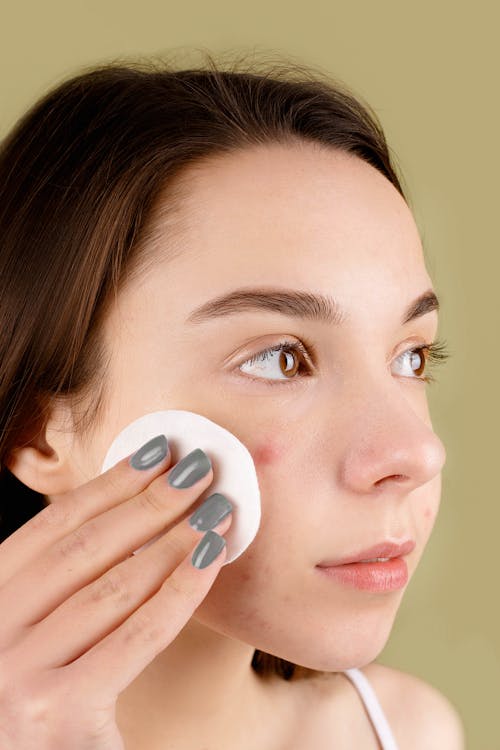How to Care for Acne-Prone Skin in Humid Climates

Acne-prone skin can be a hassle to manage, and it becomes even more challenging in humid climates. High humidity levels can cause excess oil production, clogged pores, and bacterial growth, leading to breakouts and other skin issues. To keep acne-prone skin healthy and glowing in humid climates, here are some tips and tricks to follow.
Cleanse Your Skin Regularly
Cleansing is an essential step in any skincare routine, but it’s especially crucial for acne-prone skin in humid climates. Sweat, excess oil, and dirt can accumulate on your skin, leading to clogged pores and breakouts. Cleansing helps to remove impurities, unclog pores, and prepare the skin for the next steps in your skincare routine.
Choose a gentle cleanser that won’t strip your skin of its natural oils. Look for products that contain salicylic acid or benzoyl peroxide, or natural ingredients which can help to unclog pores and control oil production, such as 100% PURE’s Lavender Oat Milk Soothing Cleanser. Use lukewarm water and massage the cleanser onto your skin in circular motions, then rinse thoroughly.
It’s also essential to avoid over-cleansing. Washing your face too often can lead to dryness and irritation, which can trigger even more oil production and breakouts. Stick to cleansing twice a day, in the morning and before bed.
Exfoliate Regularly
Exfoliating is another crucial step in caring for acne-prone skin in humid climates. It helps to remove dead skin cells that can clog pores, leading to breakouts. Regular exfoliation can also improve skin texture and reduce the appearance of acne scars.
Choose a gentle exfoliator that won’t irritate your skin. Look for products that contain salicylic acid or glycolic acid, or natural ingredients which can help to unclog pores and improve skin texture, like the Acai Pulp Facial Scrub. Exfoliate once or twice a week, depending on your skin’s needs.
Moisturize Your Skin
Moisturizing is essential for all skin types, including acne-prone skin. In humid climates, it’s essential to choose a lightweight, non-comedogenic moisturizer that won’t clog your pores. Look for products that contain hyaluronic acid, like 100% PURE’s Watermelon Cucumber Water Locking Moisturizer, which can help to hydrate your skin without adding excess oil.
Apply moisturizer after cleansing and exfoliating to keep your skin hydrated and healthy. You can also use a facial mist throughout the day to refresh your skin and add an extra layer of hydration.
Use Sunscreen Daily
Sun protection is crucial for all skin types, but it’s especially important for acne-prone skin in humid climates. Sun exposure can cause inflammation and exacerbate acne breakouts. Plus, some acne medications can increase your skin’s sensitivity to the sun, making it even more important to protect your skin.
Choose a lightweight, non-comedogenic sunscreen with at least SPF 30. Apply it every day, even on cloudy days or when you’re indoors. If you’re worried about sunscreen making your skin oily, look for products that contain zinc oxide or titanium dioxide, which can help to control oil production.
Use Non-Comedogenic Makeup
Makeup can be a great way to enhance your natural beauty, but it can also clog your pores and lead to breakouts. In humid climates, it’s essential to choose non-comedogenic makeup that won’t exacerbate acne-prone skin.
Look for products that are oil-free, non-comedogenic, and labeled “acne-safe.” Avoid heavy foundations or powders, as they can trap sweat and oil on your skin, leading to clogged pores and breakouts. Instead, opt for lightweight, breathable products like tinted moisturizers or BB creams.
Avoid Touching Your Face
Touching your face can transfer bacteria and oil from your hands to your skin, leading to breakouts and irritation. In humid climates, it’s especially important to avoid touching your face, as sweat and oil can make your skin more susceptible to acne.
Try to keep your hands away from your face as much as possible, and avoid picking or squeezing pimples. If you must touch your face, make sure to wash your hands first.
Use Oil-Absorbing Products
In humid climates, excess oil production can be a major contributor to acne breakouts. To help control oil production, use oil-absorbing products like blotting papers or powders.
Blotting papers can help to absorb excess oil from your skin without disturbing your makeup or skincare products. Use them throughout the day to keep your skin looking matte and fresh.
Powders can also help to absorb oil and keep your skin looking matte. Look for products that are labeled “oil-free” and “non-comedogenic” to avoid exacerbating acne-prone skin.
Keep Your Skin Hydrated
Humid climates can be dehydrating, despite the excess moisture in the air. To keep your skin hydrated and healthy, make sure to drink plenty of water throughout the day.
In addition to drinking water, you can also use hydrating skincare products like serums or sheet masks to give your skin an extra boost of moisture. Look for products that contain hyaluronic acid or glycerin, which can help to hydrate your skin without adding excess oil.
Get Regular Facials
Regular facials can be a great way to keep your skin healthy and clear in humid climates. Professional estheticians can help to unclog pores, exfoliate dead skin cells, and treat acne breakouts.
Look for facials that are designed specifically for acne-prone skin, and make sure to communicate any skin concerns or sensitivities with your esthetician. Regular facials can help to prevent breakouts and improve overall skin health.

In conclusion, caring for acne-prone skin in humid climates requires a combination of regular cleansing, exfoliation, hydration, and sun protection. By following these tips and incorporating acne-safe products into your skincare routine, you can keep your skin healthy and clear no matter the climate. Remember, consistency is key when it comes to achieving and maintaining healthy skin.

